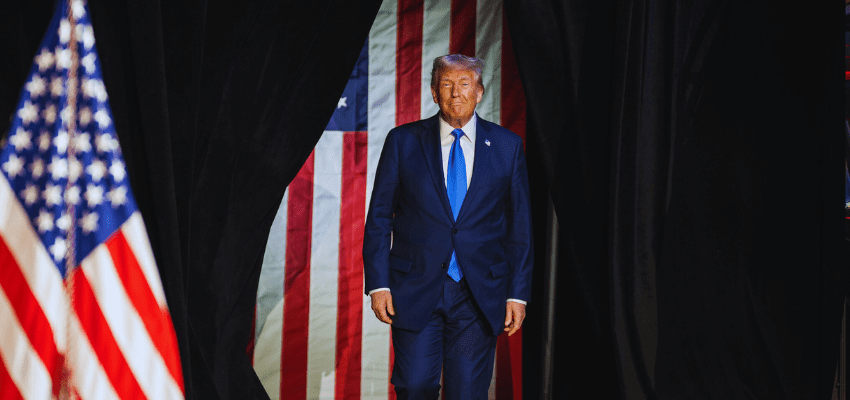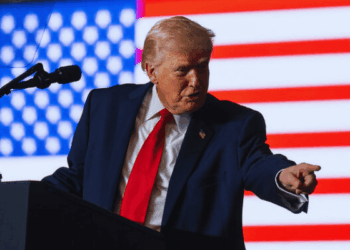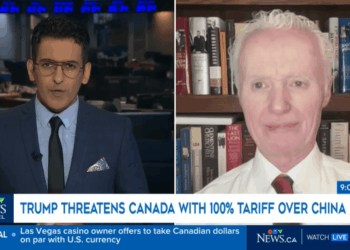This article originally appeared in The Daily Economy.
By Philip Cross, May 12, 2025
President’s Trump Liberation Day announcement of higher tariffs was supposed to trigger massive reshoring and restructuring of the US economy towards its manufacturing industries.
Instead, it provoked a sharp drop in financial markets. Such a widespread drop typically signals the onset of recession, not the redistribution of labor and capital from sectors that are damaged by tariffs to the few that may prosper. The potential for recession is evident in the widespread sell-off in US stock markets, slumping commodity prices, a sharp devaluation of the US exchange rate, and lower short-term interest rates. The anomaly of rising bond yields in a weak economy reflects the increased menace of stagflation as higher tariffs fuel higher expectations for inflation even as recession fears pummel stocks.
The retreat in financial market prices highlights the false dichotomy between the interests of Wall Street and Main Street cited by many pundits. For example, the latest reading on small business sentiment about the direction of the economy from the National Federation of Independent Business saw a 16 point drop to its lowest level since 2020. Main Street cannot thrive when investors shift funds to the bond market or to other countries and when the wealth of Americans is shrinking rapidly. The outlook is grim even for manufacturers, based on surveys by the Federal Reserve branches in New York and Philadelphia. Put simply, Trump’s tariffs are already plainly hurting those whom they were apparently meant to help.
Larger companies, whose market valuation has fallen even more than small firms, have the additional problem of dealing with the international damage to the US image as a reliable partner. Boycotts of American brands already are inflicting significant damage on the US economy that cannot be negotiated in treaties between governments and likely will persist long after higher tariffs are repealed; for example, Canadian visitors — the largest source of international tourism to the US — plunged 17 percent in March. Canada is not alone; a Ifop poll in France found 62 percent support a boycott of American companies.
The shift of trillions of dollars from private sector equities to public sector bonds is the exact reverse of what is needed to sustain America’s prosperity. The slump in the stock market and commodity prices, especially those most closely linked to industrial demand such as copper, shows investors know that the damage from tariffs will be much greater than the increase in investment the Trump administration cites as the justification for tariffs. The devaluation of the US dollar testifies to investors avoiding its assets, the opposite of Mr. Trump’s claim that “Money is pouring in and we want to keep it that way.” Markets have rallied in recent days in lockstep with administration actions to roll back tariffs and expectations that agreements with other countries will avert full-scale trade wars.
The one benefit of the carnage in financial markets is it should put to rest the wonky belief that tariffs are a boon to economic growth for at least a generation. The disastrous experience of the 1930s tariff war, which played a major role in the Great Depression and the Second World War, led to the creation of the post-war policy framework initiated by the General Agreement on Tariffs and Trade in 1947 that lowered trade barriers steadily for over 60 years. Discrediting tariffs for decades to come is the one consolation to take from the current upheaval in global financial markets.
The tariff war already makes it unlikely that Mr. Trump will be able to duplicate the economic success of his first term. The positive effects of Trump’s lowering taxes and deregulation efforts will not be nearly as visible because of tariff-induced pain, and this will in turn damage the credibility of those of us who argue lower taxes and fewer regulations stimulate growth.
Even if tariffs are repealed and taxes and regulations are slashed later this year, investor confidence will not easily be restored by an administration that embraced such needlessly destructive and short-sighted policies despite ample warning of their dangers.








